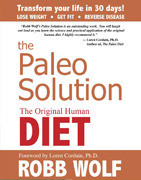I was asked about using essential oils internally today... that is the number one question I get asked about essential oils on a weekly basis.
My response was as follows:
I'm a certified aromatherapist and I trained both with an accredited school in Australia and in the US at Bastyr University. There have been less than a handful of deaths from essential oil ingestion and those were from taking synthetics...which is why knowing what is in your oil is so darn important. Some essential oils are not GRAS and should not be taken internally regardless.
Many sensationalist bloggers have been posting to never use an oil internally for the hits. If you look at all of the clinical trials using essential oils over 90% are internal use research. So that's the long answer...lol...The short answer is that if you work with an expert that is highly qualified they will know what you can and can't use. And remember unlike a Styrofoam plate you are not synthetic. Your body will absorb an oil in 20 minutes to 90 minutes (internally or topically) and then it will be eliminated in your bodies waste system.
Question was then: I thought it was Robert Tisserand who said something to that effect, or at least only ingest if you are highly qualified to do so...
Robert has said in the past on internal essential oil usage, as with all other ways essential oils are applied to the body, they must first be diluted in a suitable medium.

Robert has a fantastic gigantic essential oil safety book that I recommend, and he is one of the amazing guys that my instructor from Bastyr quoted a lot because of the training and work he has done with him. Robert's book is what I use, and what I recommend for professionals to have. So many companies just give advice that is not proven, or safe. As with medicine, food, fitness, there is no black and white of essential oils and so just saying everyone can use one, or they are totally safe to ingest all of the time just makes me crazy. But just as crazy are the folks that are totally against anything but inhalation.
Let's just talk Tea Tree oil.
The Swedish MPA has registered three Tea Tree Oil containing products as "natural medicinal products". These are products that are being used internally. In Germany it's sold for internal use, as it is in many countries. Yet most of what you hear is that Tea Tree oil is so toxic. Right?
The truth is that there are a few case reports of intoxication caused by Tea Tree Oil in humans. A 4-year-old boy ingested a small quantity of Tea Tree Oil and became ataxic and progressed to unresponsiveness. But 24 h after admission the child had recovered. A 17-month-old male child developed ataxia and drowsiness following ingestion of less than 10 ml Tea Tree Oil. (that is 1/3 of a bottle of most Tea Tree on the market that is being sold) A 23-month-old boy became confused and was unable to walk 30 minutes after ingesting less than 10 ml of a commercial product containing 100 % melaleuca oil. 5 hours following ingestion the child was asymptomatic. A man aged 60 swallowed about half a teaspoonful of Tea Tree Oil and had a dramatic rash accompanied by leukocytosis. One person lapsed into a coma for 12 hours after ingesting half a cup of pure Tea Tree Oil and suffered disturbances of consciousness for another 36 hours.
If you look at the history of most essential oils that can and are used internally the issues are from items just like this. Taking too much. Leaving oils where children can get to them. One drop is VERY powerful. People can always start with just one drop, of an internal use oil, and then if they don't get enough of a result take another drop in two hours. Safety is always the key.
What I find so funny is that people have this huge issue all across America with using a drop of essential oil internally, but they don't even consider what gmo / pesticide ridden foods are doing to them. Doesn't that seem so odd??
But...does that mean you should take Tea Tree oil internally?
Not without working with a trained professional. Tea tree oil has a relatively simple composition (about 30 compounds) and therefore is easily synthesized in the laboratory and this is indeed carried out: such oils are known as reconstructed oils (RCO) and are not natural products and may have unwanted side-effects. And tea tree oil contains varying amounts of 1,8–cineole, a skin irritant. Products with high amounts of this compound may cause skin irritation or contact dermatitis, an allergic reaction, in some individuals. Oxidized tea tree oil (oil that has been exposed to air) may trigger allergies more than fresh tea tree oil.
So keep all of this in mind when considering how you use your oils. Testing, important!! Knowledge, important!! Safety, MOST IMPORTANT!!
Learn more at : http://aeota.org/safety/consumer-safety/
Finally, what simple and effective ways can you use safe essential oils internally? If your Certified Aromatherapist, like myself, give you the okay then put one to three drops (as recommended) in a vegan capsule and swallow it whole. Second, take an essential oils softgel that was made for internal use. Essential oils are not a cure, they are not a medicine, and they are only there to support your system, not treat an illness. However, essential oils can be something useful in a natural lifestyle.
Learn more about essential oils, and get my free e-book here


.png)







































0 comments:
Post a Comment